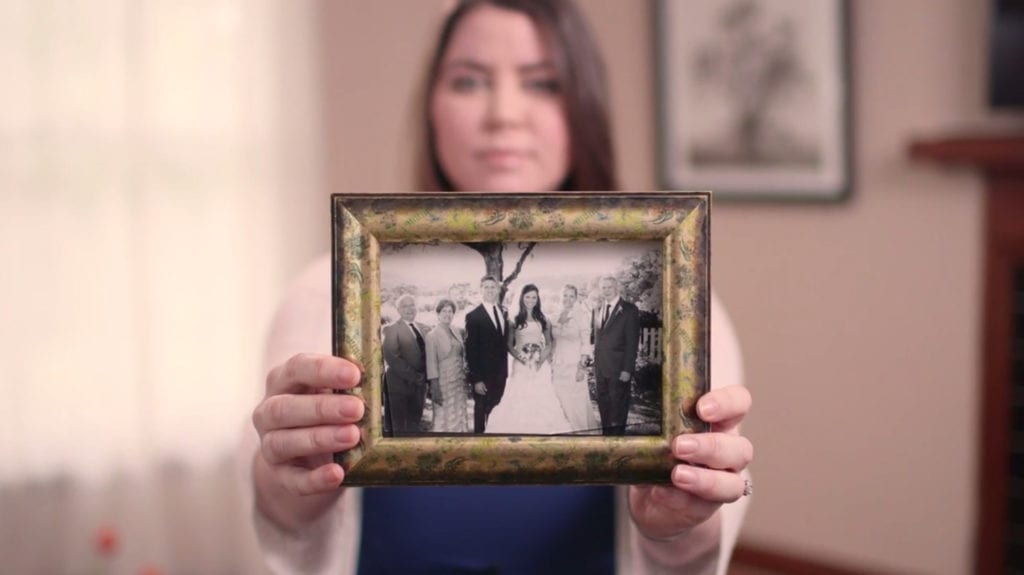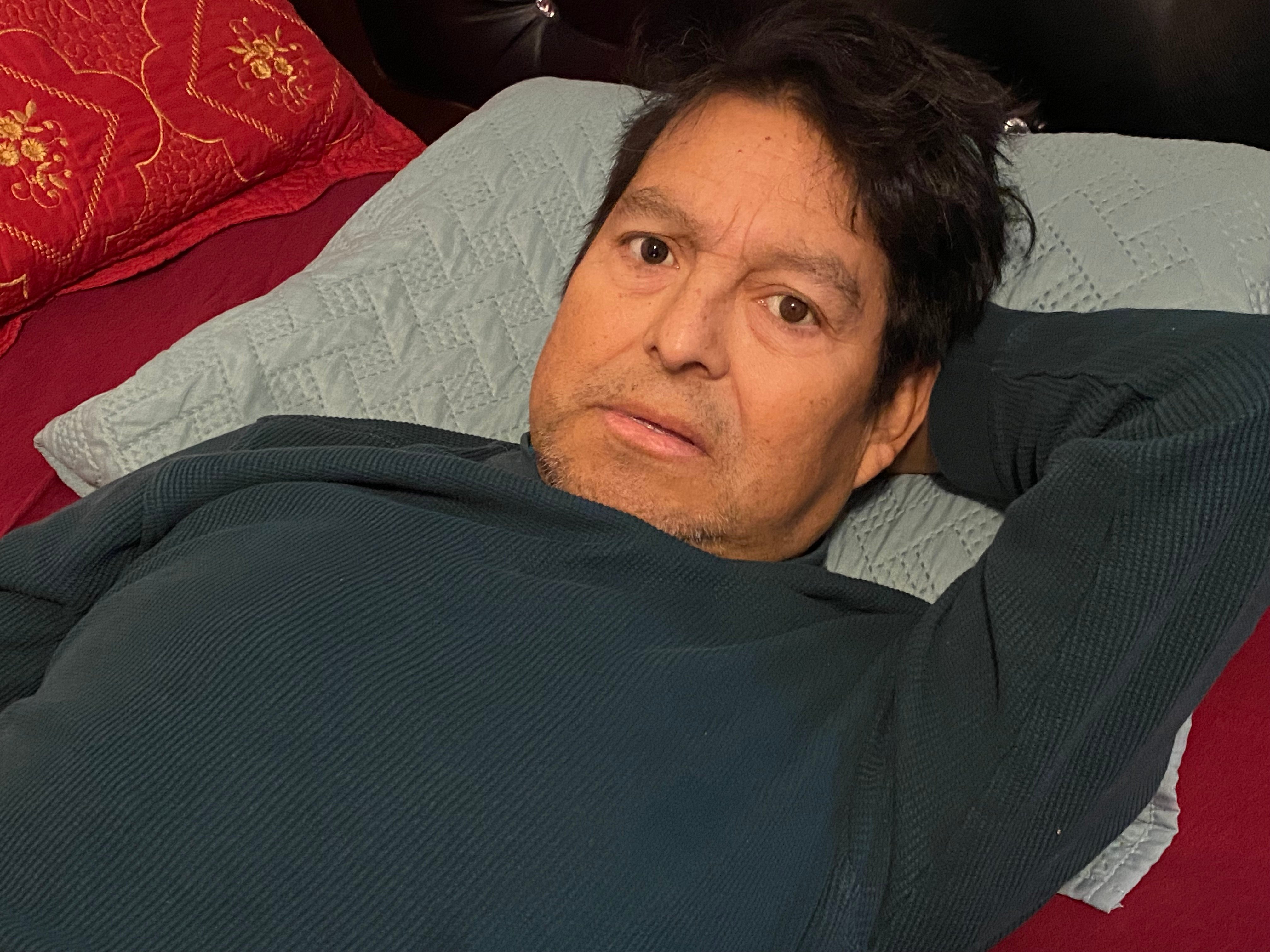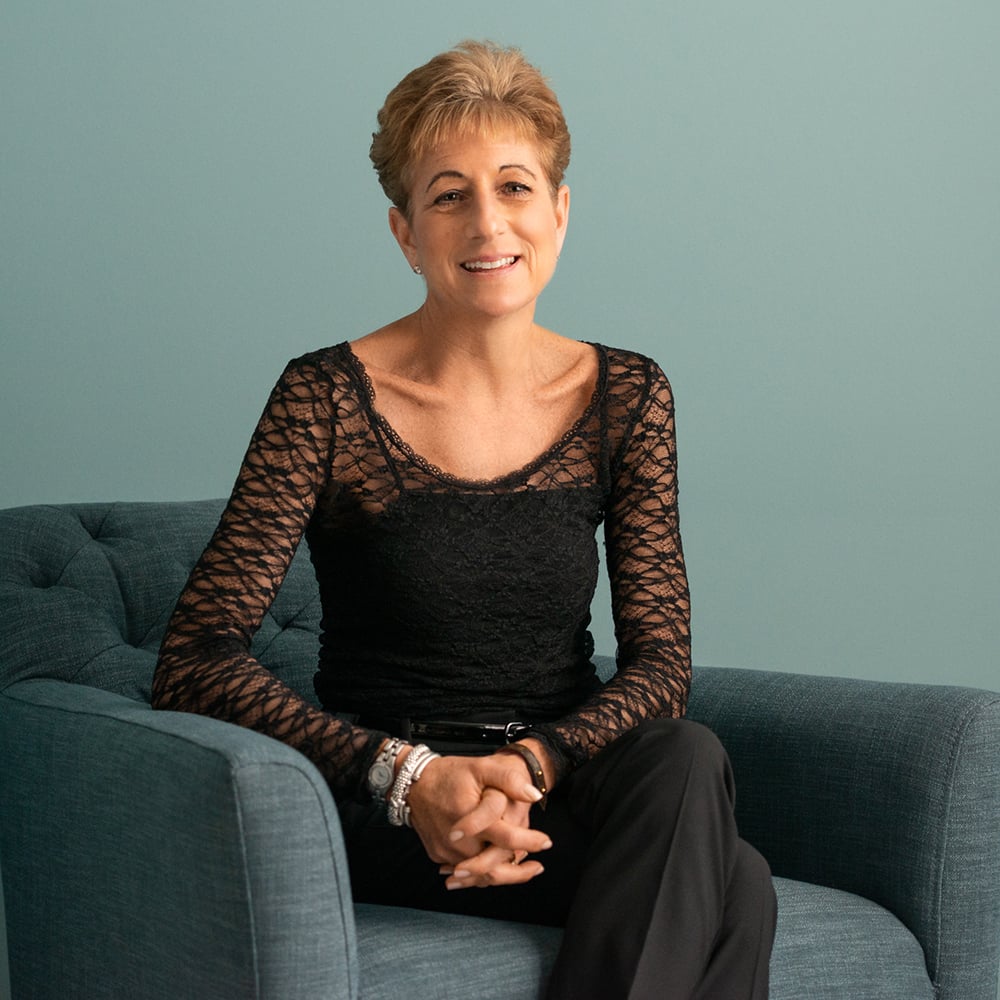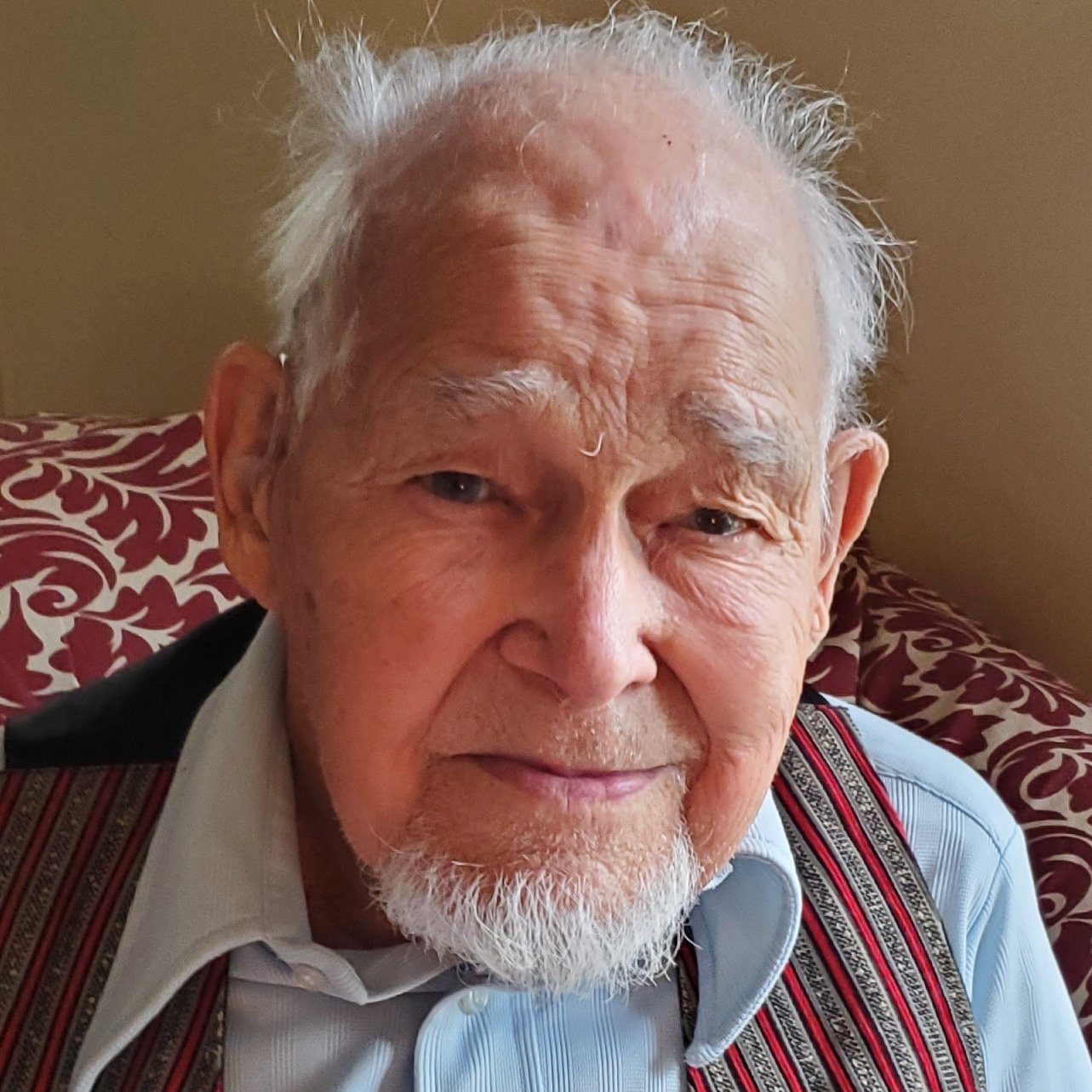Jill shared her story in October of 2022.
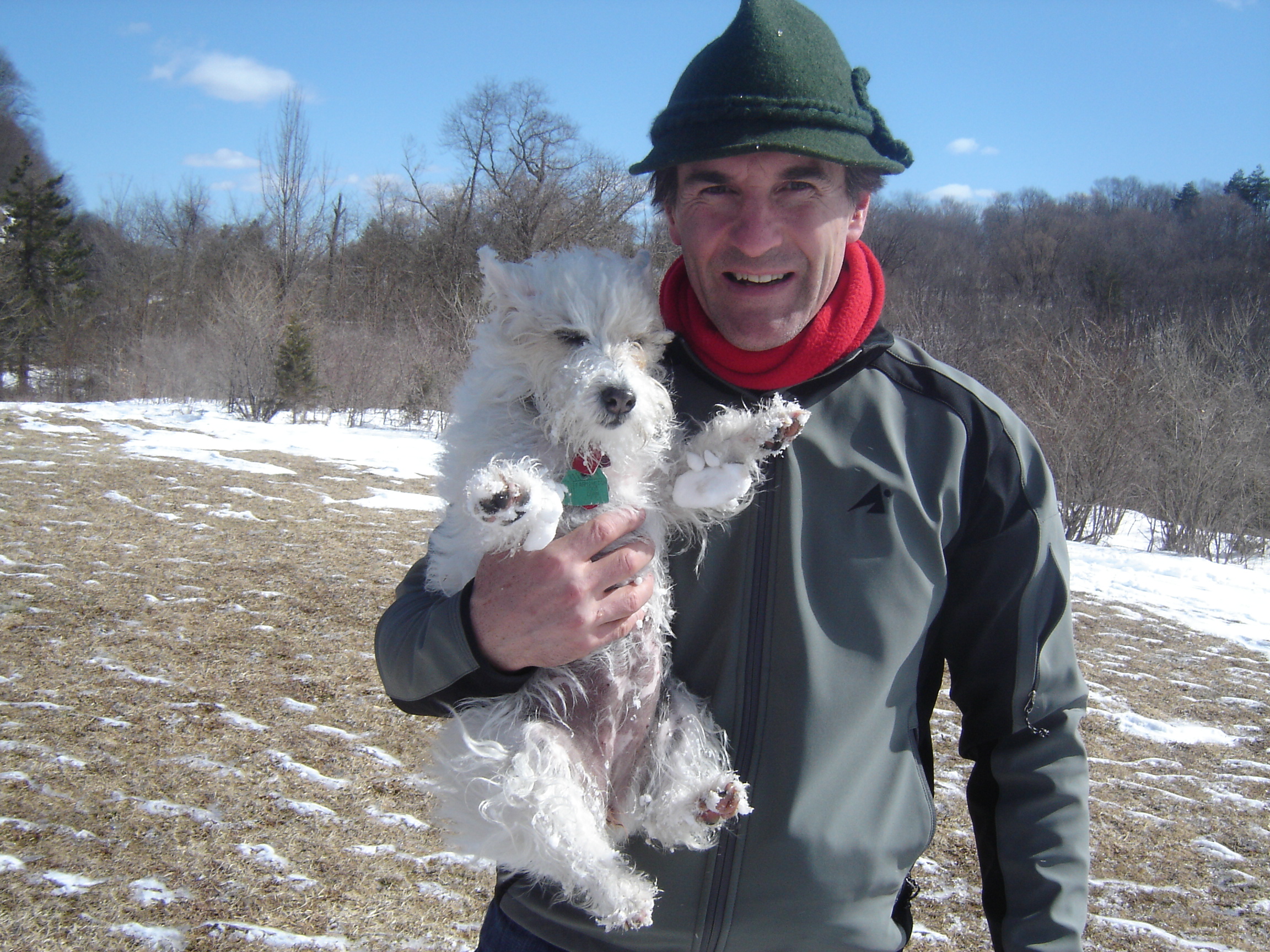
Mark Fey with their dog.
My personal story begins with a broken promise to my husband of nearly 40 years. Our hero lived out the progression of prostate cancer for over 17 years, enduring surgeries with both traditional and experimental treatments. The most remarkable part of this time was that he never let it show. His outrageous sense of humor, work ethic and love of his architecture firm, community, and family dominated his daily life — there was no room for fear. His rapscallion nature coupled with his big heart made him an irresistible force to reckon with in both work and play, which were intertwined.
We knew each other our whole lives, meeting at just six and seven years of age with our backyards touching. We played together as children, competed for babysitting jobs as teenagers, and we both studied nutritional science at UCONN. After 10 combined years of study and work in food science biochemistry, Mark realized he had always wanted to be an architect, so I said, “Go be an architect.” I was pregnant with our second son at the time but had no doubt that Mark would become a brilliant architect. He was able to apply what he knew from the science field, especially when designing medical facilities. He was incredibly smart, and he was a great designer.
Mark loved Farmington almost as much as he loved me and our sons. He was very active in town politics and remained on the town council until his last days. Decades prior, he established his architectural business in town and convinced me to join the business as bookkeeper, selling me on the idea by saying, “We can have lunch together every day and have the boys join us at the office after school.” Even in his last months, he continued to work one day a week to ensure things ran smoothly. He never wanted to be seen as “the sick guy.” He just always kept on.
But the disease finally became impossible to deny once his doctors shared the last MRIs with us a week before Christmas of 2011. The cancer cells had migrated to his bones and liver, where they formed massive tumors. My three sons and I received this news together with an odd calmness as our hero seemed at peace. He was given pain medication, a blood transfusion and sent home with generous hospice care. I reached for his hand and promised with a wry smile that at last he could relax. The accelerating pain he had been experiencing would finally be lessened.
For the next six weeks, we welcomed family and close friends for conversation, stories, laughs, tears, music, favorite movies; celebrating “ordinary” time that was anything but. It was a magic time in our lives, suspended and set apart from all else. When asked what his last wishes were, Mark replied, “Just this. Hanging with you guys and our pups, Jill making bread and soup, boys taking me for rides in the jeep around my town … .” His single request was to leave the windows open in our bedroom for his escape, and maybe the front door too, just in case.
Our good friend and hospice nurse, Ruth, checked in with us as usual on what would be his last day. The vitals indicated that he would begin “breaking down” any time. “Keep a pile of dark towels by the bed; prepare for bleeding to begin,” were her gentle yet firm warnings.
That same night, Mark woke up in excruciating pain. The unearthly sounds are with me every day. He became a drowning victim, fighting for each breath. The powerful medication given to me to administer when such time came provided no comfort for a seeming eternity. Holding him close, trying to absorb some of the agony, I whispered, “I’m sorry I broke my promise. I thought it would be enough.”
Mark was comfortable until he wasn’t. Then it was a crisis with no relief — no amount of fentanyl, oxycodone and morphine could alleviate his pain during his last 14 hours. It was pure agony until he passed on February 4, 2012.
If my husband had had the prescription waiting on our bedside table, he would have used it on that last sunny day when we were together with our sons. There would no doubt have been a celebration with Hey Jude, The Life Aquatic, a Red Sox cap, a Guinness and an open window. Instead, we carry the individual as well as the collective trauma of the indignity of his pain forever etched in our hearts.
So now I ask Connecticut legislators to support the authorization of medical aid in dying for terminally ill adults. If passed, the choice would offer comfort on many levels for all involved. My hope is that enough lawmakers will support the elimination of unnecessary, prolonged suffering for our loved ones to make this option a reality for dying Connecticut residents.


.jpg?sfvrsn=10bd8176_3)
